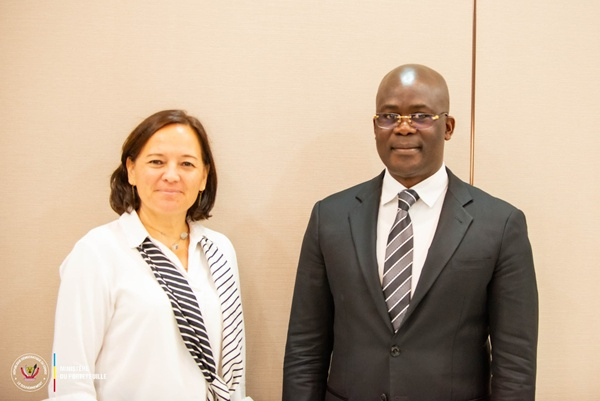Belgium's ambassador to the Democratic Republic of Congo (DRC), Roxanne de Bilderbing, met with Minister Jean-Lucien Bussa, responsible for public enterprises, on October 2, 2024. During their meeting, the ambassador learned about the government's plans to improve the governance, management, and strategy of public enterprises.
"The reform of public enterprises is fundamental to support the country's economic growth," she said after the meeting while voicing Belgium’s readiness to support the DRC in the process.
Since the new government took office in May, the ministry has been very active. Minister Bussa faces two major challenges: legal issues affecting state-owned companies and improving their performance.
"The repeated seizures of these companies' accounts have had disastrous economic and social consequences," Bussa noted at a conference on September 26, 2024. The conference focused on a decree aimed at securing the assets of public companies to protect them from financial threats.
The Minister also emphasized the need to enforce a 2008 decree requiring all executives of state-run companies to sign contracts that outline their terms of office, rights, and obligations.
The reform mainly aims to restore public companies as key players in the DRC's economic development. However, there is still much work to be done.
A study from 2022 by the Conseil Supérieur du Portefeuille shows that public companies are vital to the Congolese economy. By the end of 2021, their book value was $14.3 billion, making up about 26.14% of the country's GDP, down from 29.6% in 2020.
Regardless, many public companies are heavily in debt, often exceeding their asset values. Their poor operating results limit their ability to repay creditors, and they face significant cash flow challenges. In 2024, their short-term financing needs were estimated at nearly one billion dollars.
Cooperation with Belgium could significantly help revitalize these companies by providing short-term solutions to improve production infrastructure.
There are opportunities to reduce the public sector deficit through debt restructuring and long-term plans in partnership with the financial sector. Similar successful initiatives have been carried out in Cameroon for state-owned companies like AES Sonel (electricity) and Sonara (oil refining).
Georges Auréole Bamba










